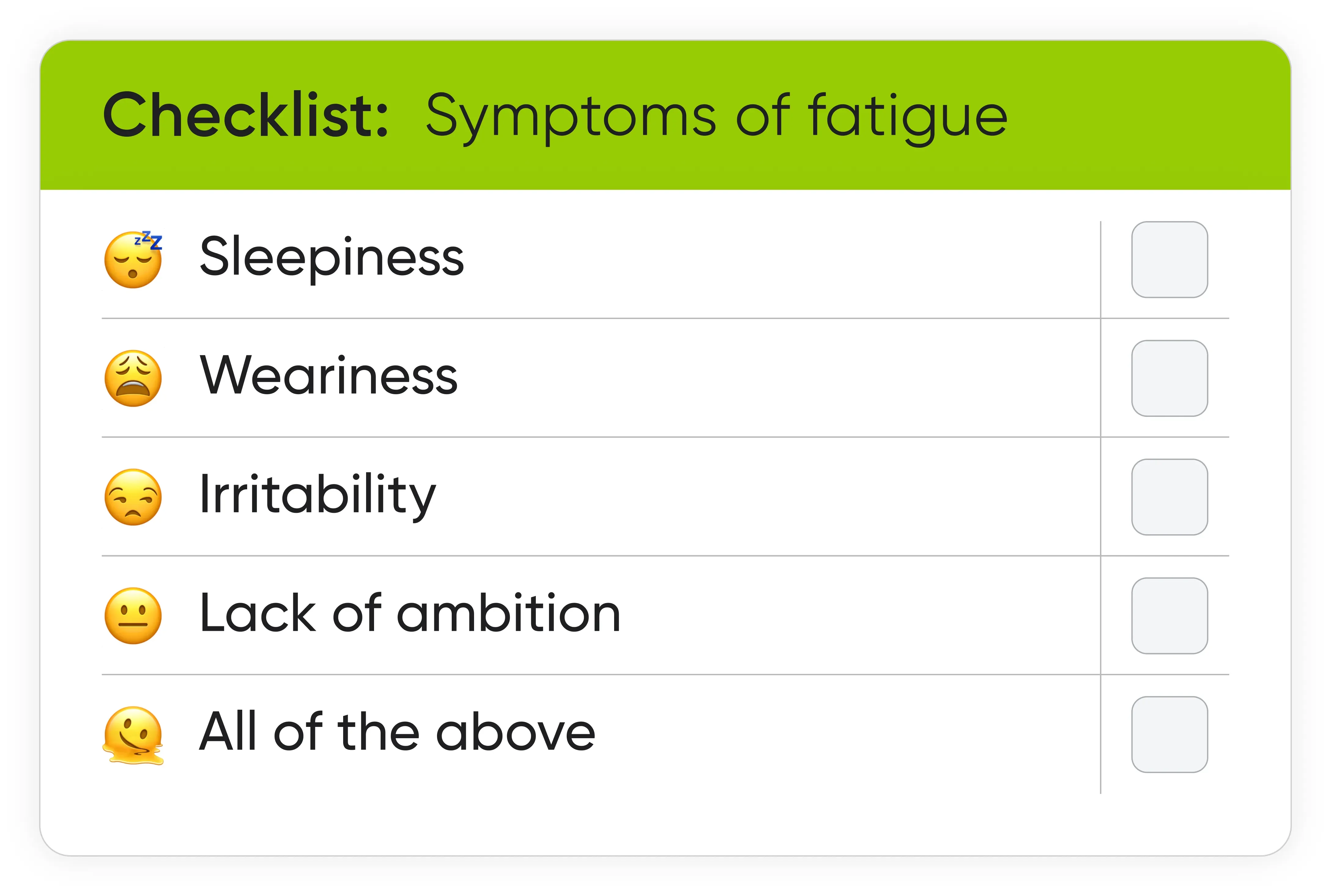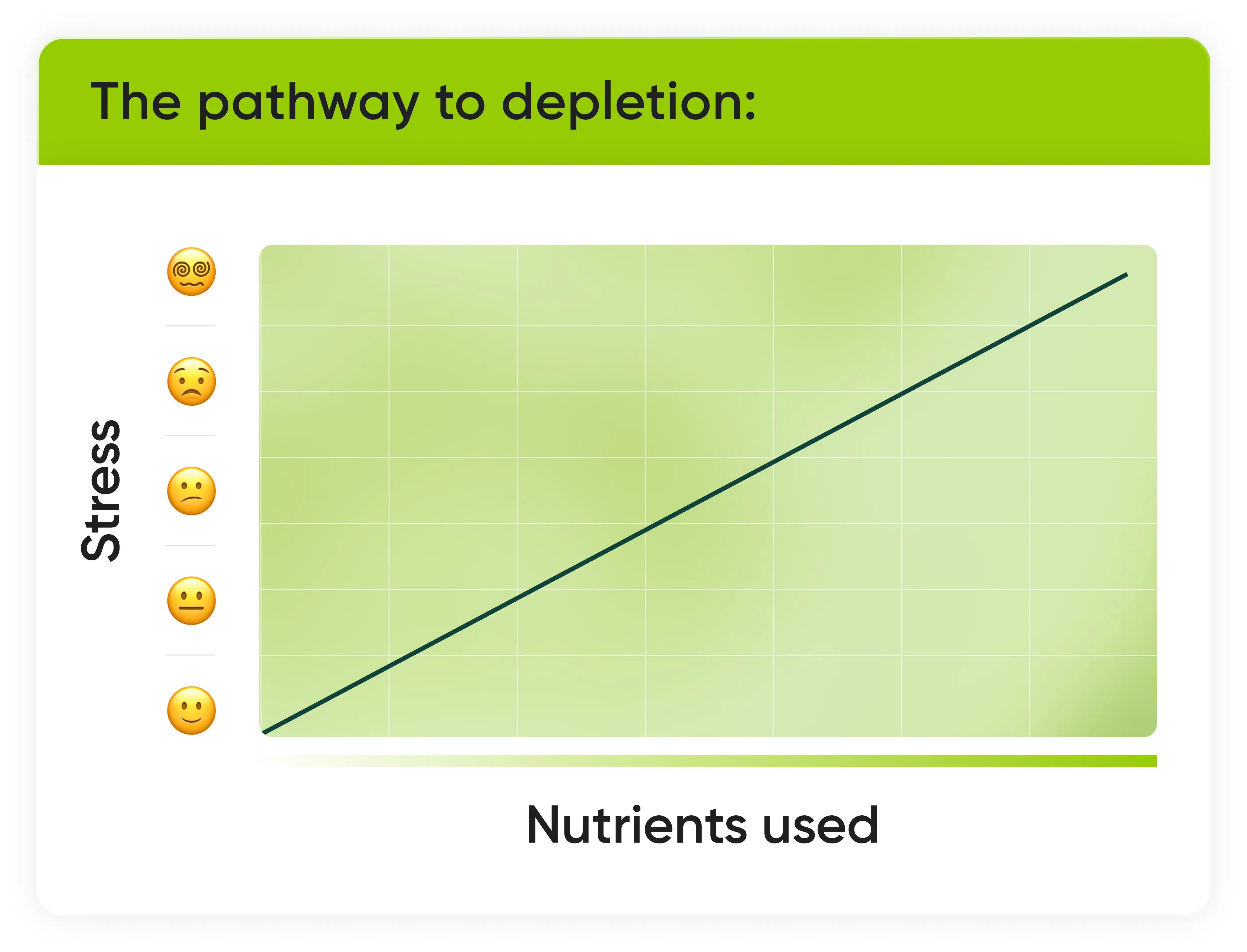What are the best vitamins for tiredness and lack of energy?
Key Points
- Fatigue is one of the most common symptoms GPs encounter in patients
- A lack of key nutrients in the body may contribute to fatigue
- Vitamin supplements may help restore your nutrient levels
Tiredness can feel part and parcel of being an adult sometimes. Whether it’s the toll of running a household or being swamped with work deadlines, you might find yourself feeling burnt out occasionally.
But what if you’re feeling flat and tired more often than not? Fatigue may be a symptom of an underlying issue. It is important to address the root cause of the problem first, and seek the guidance of a healthcare professional who may give you tools to help restore your energy.
When browsing the best vitamins for tiredness and lack of energy on the market, it’s normal to wonder if they actually work. And if they do work, how do we know which ones are right for our specific needs?
Let’s investigate.
What is fatigue?
According to the Royal Australian College of General Practitioners, fatigue is a common symptom patients present to GPs with. But what is fatigue exactly? Symptoms include:

Contrary to popular belief, fatigue is not a condition in itself (nor is adrenal fatigue). Instead, it can be a symptom of a variety of health conditions. Your health professional might try to determine whether issues like hormone function, viral infection, nutrient deficiencies, inflammation or stress contribute to your fatigue.
What role do nutrients play in fatigue?
Vitamins and minerals are nutrients that our bodies need. The 13 essential vitamins and minerals include:
- vitamins A, B, C, D, E and K
- calcium
- iron
- iodine
- zinc
- magnesium
- potassium
- sodium
Our bodies use these nutrients for many metabolic processes, which are chemical processes the body uses to function and sustain life, such as oxygen transportation and energy generation. When we don’t have the correct amount of nutrients, we may feel mental and physical fatigue.
Usually, we get the vitamins and minerals we need from food. Most people get enough nutrients by eating a balanced diet that covers all five food groups. However, when a nutrient deficiency occurs, your health professional may recommend a supplement.
Can vitamins help when you’re feeling flat and tired?
When you feel your energy has been zapped, but you’re not sure why, a health professional is the best place to start. During an appointment, they may be able to assess your symptoms and test for any deficiencies that may be causing the fatigue.
When the results are back, your health professional may recommend some vitamins to relieve tiredness and support energy..
Can vitamins help if my fatigue is stress related?
Studies suggest that stress can deplete our nutrient levels. If you’re feeling stressed, Healthylife naturopath Gabbie Watt says getting quality nutrition from your food is vital, but sometimes, when you are extremely depleted, supplements and vitamins may help to treat the root cause of fatigue.
“When we’re stressed, there may be an increased need for nutrients because our sympathetic nervous system is activated,” she explains. “The change in our metabolic function means we’re using up many nutrients in that process.”

In addition to taking vitamins for tiredness, it may be a good idea to look at the source of your stress. A health professional can help you determine the cause of your stress and may recommend an approach or solution to reduce it.
If you need more help or support with mental health, please see your healthcare professional. You can also visit Beyond Blue for additional resources.
How can we tell if vitamin supplements are effective?
Remembering to take your supplements daily is one thing, but how do you know they’re actually working? When taking vitamins for energy and tiredness, Australians should consider the following factors.
Which form of supplement is best?
A health professional can help you work out the best dosage and brand of vitamin to take, but the form of supplement can be your choice.
Do you like swallowing tablets, or would a liquid be easier to consume? Or would you prefer chewable tablets?
“The best form of vitamins is usually the one you’re more inclined to take,” Gabbie says. This way, you’re more likely to take your supplements on schedule.
Why do vitamins turn my wee yellow?
You may have noticed a bright tinge to the colour of your wee after taking vitamins. This is usually due to the antioxidant riboflavin – a member of the B family of vitamins.
As riboflavin is water soluble (which means it can dissolve in water), it can be easily excreted through your kidneys if you’ve had too much. If your wee is brighter after taking supplements, this doesn’t necessarily mean you’ve missed out on the benefits.
What is a vitamin’s bioavailability?
The bioavailability of a tablet is also worth considering when looking at supplements. This refers to how well the body absorbs nutrients from supplements or food.
When a supplement is marketed as ‘bioavailable’, this generally means it’s been prepared in a way that allows the body to absorb as much of the nutrient as possible.
“Certain vitamins and minerals, like folate, should be taken in their active form,” Gabbie says. “But also some nutrients come in a form that’s not bioavailable, and your body is able to break it down to the active form for you”. Your health professional can guide you through which ones do this.
One study found that the following factors might impact the bioavailability of a nutrient:
- diet
- dose of the supplement
- interactions with other nutrients
- the timing of supplements and meals
- the chemical form of the nutrient (e.g. magnesium can come in multiple chemical forms)
Learn the labels
Your healthcare professional can recommend the best vitamins for tiredness and lack of energy. However, it’s up to you to become an expert label reader. Fillers, preservatives, sweeteners and other additives may be found in your supplements, so learning to read what’s in them can help you choose the right product for you – and maximise its benefits.
The Australian Government’s Therapeutic Goods Administration (TGA) conducts pre-market assessments of vitamins. These checks investigate the:
- ingredients
- commercial sponsorship
- manufacturing processes
- proof of claims made
Although the TGA regulates supplements, it’s your responsibility to check that the supplements you’re taking suit your health needs.
Are vitamins for fatigue best taken as a complex?
Of the 13 vitamins we need, a whopping eight come from the B group. Your GP may recommend taking a B-complex supplement if you feel fatigued. B-complex supplements contain several B vitamins, which can make it easy to get more of what you need.
“B vitamins come as a complex mostly because we need them working together for specific functions in our body,” Gabbie says. “But if your healthcare professional finds you’re deficient in a certain nutrient, you might be able to take just one vitamin or mineral to overcome it.”
Support for your body
Our bodies usually absorb many different nutrients from a balanced and varied diet. If you’re not getting enough of a certain nutrient, you may feel fatigued as a result.
Speak to your healthcare professional if your fatigue isn’t going away, or you have an unexplained feeling of tiredness. A proper care plan and the best vitamins for tiredness and lack of energy may be all you need to feel re-energised.
Related:
- What are B vitamins and why are they important?
- What are practitioner only products?
- Does collagen powder actually work?
Gabbie Watt is a naturopath who’s passionate about blending evidence-based practice and traditional natural medicine into her approach. Having previously worked as a radiation therapist, Gabbie’s professional background in conventional medicine has been instrumental in shaping her holistic approach to health.
Reviewed by Healthylife health experts January 2023.
